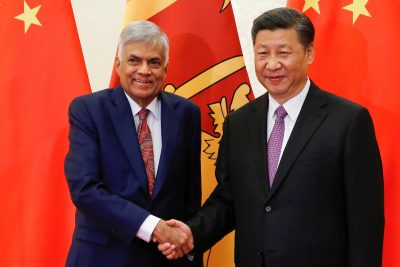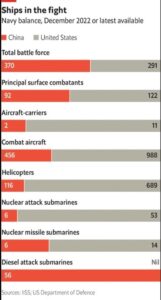
By Asanga Abeyagoonasekera 13 November 2023
“They make you forget your life and push you towards some light. All bourgeois tools of the oppressor. They tell you that injustice is part of some grand plan” Shehan Karunatilaka, The Seven Moons of Maali Almeida
Sri Lankan people are in agony due to the absence of democracy. Sri Lankan senior politician and member of parliament M.A. Sumanthiran was right to say, “The present state of affairs may even compel us to say that people should voice their grievances against the government, even if it means breaking the law.. it’s high time for people to demonstrate their agitation more than ever, as this government has brought people to their knees,”. Much has happened since last year, when the island of Sri Lanka was declared bankrupt. The crisis impacted economically and politically, especially the daily lives of every Sri Lankan, not sparing even the middle class.
There is poverty and pain in many lives with a bare minimum income to survive another day. During my recent visit to Sri Lanka, I noticed the economic and political dysfunctionality from the past regime prevails to date. The autocratic grip held the nation by the former president, Gotabaya Rajapaksa, continues in the backdrop, while an appointed president, Ranil Wickremasinghe, continues in office. For the first time in Sri Lankan political history, such an “appointed model” is exercised, where people have not voted; thus, a president is tossed to them by the parliament. People are squeezed by economic hardship and political oppression, where the previous regime’s imprint continues with control of the parliament majority. My recent interviews with civil society actors in Colombo revealed that several tools are used by the oppressor, Ranil Wickremasinghe, to crush the democratic space on the island. Almost everyone I interviewed was asking for democratic elections, which were postponed for nearly a year. The regime crushed the protests and continues to do so while introducing further draconian acts to control the media space; the new online safety bill is in this direction. Days ago, the health minister Keheliya Rambukwella was moved to another ministry as a consequence of distributing substandard medicines and several other corruption allegations where many deaths were reported. Then, there is substandard fuel, and the list continues.
IMF was spot on and accurately identified the systemic corruption that directly impacted governance in Sri Lanka as a primary cause for the economic crisis in their ‘Sri Lanka: Technical Assistance Report-Governance Diagnostic Assessment’. I had the opportunity to contribute as a technical advisor for this report. The 16 priority recommendations require considerable attention from the Sri Lankan government. The corruption continues to date, unfortunately, with not much change. The present leadership will fail to address the corruption due to the political dependency of the previous regime. Unfortunately, the cycle of political protection for the corrupt and dependence to sustain political office will continue until the next election.
President Wickremasinghe was supported by the West and seen as the only solution to stabilise the country in 2022. What has materialised after one year of his rule is an entirely different outcome where Wickremasinghe has questioned Western policies, including the US Indo-Pacific, calling it an artificial construct and AUKUS as a “military alliance moved against one country-China”. Further questing the rules-based order and Western hypocrisy on human rights. Wickremasinghe has been transiting to the old order, the foreign policy orbit of his predecessor, Gotabaya Rajapaksa. The China tilt is nothing new to the Rajapaksa foreign policy continued by Wickremasinghe.
There is a pattern when compared with the previous regime. Gotabaya Rajapaksa began his presidency with an India tilt where his foreign secretary explained an “India first foreign policy” in the local media and, after a year, transformed towards a China bandwagoning foreign policy. The same pattern is visible in the present Wickremasinghe regime, where India came to the rescue with nearly USD 4b in financial assistance in 2022 at the beginning of the Wickremasinghe presidency, followed by the president’s visit to Delhi in July 2023, securing multiple bilateral projects which have shifted towards a heavy China tilt in the present. The shift is due to the elite capture and China’s economic dependency, where debt restructuring is part of the bigger problem. From a Moratorium announced in February, China has agreed on a debt restructuring of USD4.2b, days before President Wickremasinghe visited the Belt and Road Forum(BRF) in Beijing. China’s considerable influence spread across many political actors in Sri Lanka is an apparent factor. The significant elite capture during the Rajapaksa regime remains a vicious cycle in the present administration. Elite capture was a concluded data point during my recent visit, where a senior bureaucrat revealed names of local politicians directly funded by the Chinese embassy to support Chinese policies, including the current Chinese research ship Shi Yang 6 visit. Wickremasinghe is entangled in the corrupt Rajapaksa web of political elites captured by China.
Chinese Hybrid Research in Indian Ocean
According to the Economist, President Xi wants the PLA to be “basically” modernised by 2035. There have been considerable strides in PLA defence technology in recent years. China’s air power with its WS-15 matched to the Pratt & Whitney engine on the American F-22 indicates the Chinese defence trajectory standing at $225bn in the 2023 budget compared with the US at $817bn. China’s 56 diesel attack submarines (see figure) for maritime defence and expansion of its military assets to the Indian Ocean is a clear strategy of President Xi. This year has been an inflection point for many geographies from the South China Sea, where nations like the Philippines had actively ‘publicising so-called “grey zone” activities’ by China. Sri Lanka is on the PLA radar due to the island nation’s strategic geography facing the Indian Ocean.
China has managed to secure several vital initiatives with the Wickremasinghe regime. According to Rathindra Kuruwita, ‘The docking of the Shi Yan 6 a few days earlier had stirred strong responses from India and the United States. The same thing happened last year when another Chinese ship, the Yuan Wang 5, had docked at Sri Lanka’s Hambantota port.’ The research collaboration with Chinese research ship visits and the local research agency, the National Aquatic Resources Research and Development Agency(NARA), is a vital agreement. Unfortunately, NARA does not possess an understanding of the hybrid operation carried out by China in the Sri Lankan waters collecting hydrographic survey data for submarine warfare. The Chinese and NARA use a completely irrational narrative defending the research conducted in the Sri Lankan waters, explaining that the Sri Lankan agricultural industry, where farmers could benefit from earlier rain forecast data captured from Shi Yang 6. Further, the research agreement secured by China with the NARA includes establishing centres to monitor the sea levels in Dikowita and Dondra Head. The centres will facilitate direct Chinese access to Sri Lankan marine resource data. The Standard Operating Procedure(SOP) for foreign vessels entering Sri Lankan waters was introduced by the Sri Lankan government on July 17, 2023, an ineffective document only accessible to a few in the government. SOP was pushed as a confidence-building document during Wickremasinghe’s July 2023 visit to India to ensure Sri Lanka will prioritise Indian security concerns. What you witness now is an entirely different turn than what was assured by Wickremasinghe’s discussions with Prime Minister Modi.
According to the local news, there have been 19 Chinese research vessels that have visited Sri Lanka. More Chinese research vessels are expected to visit soon, as revealed after my recent conversation with Chinese embassy official Colonel Gao Bin on 27th October in Colombo. Colonel Bin questioned this author, “Is the Indian Ocean India’s Ocean?” defending China’s rights to enter the Indian Ocean for maritime research. The next question was on a historical context: “In ancient times, was India a country when China was a country?” an argument to claim China’s historical influence in the past in South Asia and the Indian Ocean. The final question was about US hypocrisy in policy: “Does the US like Socialist now?” referring to the visit of socialist political party leader Anura Kumara Dissanayake (AKD) to Washington DC orchestrated by Julie Chung, the present US Ambassador in Sri Lanka, said Colonel Bin. The Chinese Colonel raises a legitimate point since AKD had stood against US policies, such as the MCC grant, which was lost for the fear propagated by AKD himself, saying, “MCC consists of clauses that make a negative impact on the sovereignty of our country. It has the power to give the green light to American companies to take over our economy. Therefore, I give a big no to the MCC.” US assessment of AKD is narrow in this regard.
India’s security sensitivity
The security sensitivity of India on these dual-use visits in the guise of research should be a concern for Colombo. An Indian Naval officer speaking to me at the recent Chanakya Defence Dialogue in New Delhi confirmed the data collected from Chinese research vessels are for military use and not scientific use, “we know the Indian Ocean well since we have been doing this for many years, we know every corner of the Indian Ocean, Chinese just started to map in preparation for submarine warfare”. Unfortunately, Wickremasinghe’s new foreign policy directive has ignored India’s sensitivity. Every time Sri Lanka fails to calculate the wider regional security sensitivity raised by India, the nation invites an extra burden to its foreign policy, which impacts domestic politics. India had clearly warned before Shi Yang 6 arrival of the security concern to India; the political leadership has promised rhetorically that Sri Lanka would not entertain such research vessels. What materialised with the surprise arrival of Shi Yang 6 on the 25th of October was a different outcome, which will strain Indo-Lanka trust. A distinguished former Bangladesh Ambassador assessing the Chinese research ship’s arrival in Colombo stated to this author, “Does Wickremasinghe enjoy committing suicide?”. Besides marine activities, China has also managed to get Wickremasinghe to secure a Huawei agreement in Beijing, another security concern invading Sri Lanka’s telecommunication network, not limited to Chinese research ships.
Will Sri Lanka follow the Maldives?
The continuation of Wickremasinghe’s foreign policy and its autocratic rule postponing elections will give ample time for China to establish its position to influence policy comfortably. Beijing’s strong partnership with Wickremasinghe indicates the recent policy shift, which will impact the nation in the coming months. It is as if Beijing has successfully won India’s immediate periphery when assessing Sri Lanka’s neighbouring island, Maldives. In the Indian Ocean, according to Josh Bowes at SAFN in Washington DC, with the recent election victory in Maldives, the strong partnership with the new Maldives President-elect Mohamed Muizzu ‘will offer Beijing an increased incentive to continue its activities in Indian Ocean nations, like Bangladesh and Sri Lanka, where China already has a foothold across various sectors’. The present trend in South Asia depicts India losing its grip on several nations in its immediate periphery to Chinese influence. Sri Lanka is on this trajectory, following the Maldives. President Wickremasinghe’s new tilt will pave the way for a more assertive China in the island nation. The strategic miscalculations of the US and India will be a definite consequence in the next election. At the same time, the oppressor will push the people towards a light, backed by the Dragon in its grand plan, suppressing democracy.
*The commentary was initially published by Global Strat View

